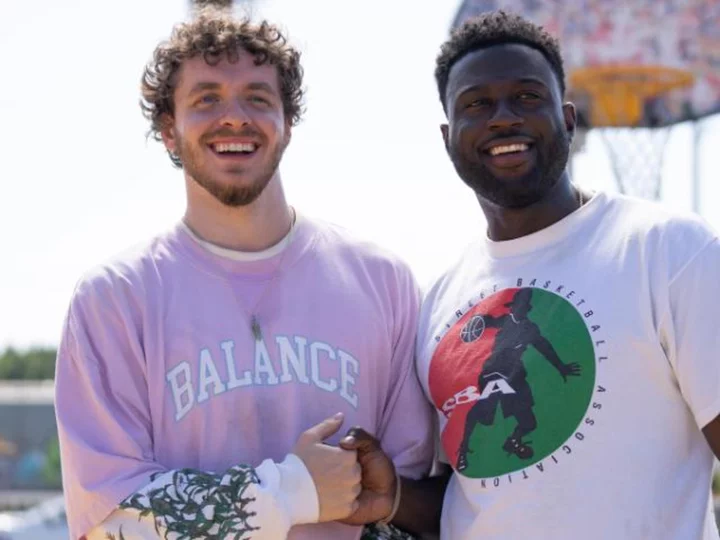"White Men Can't Jump" doesn't exactly work overtime to bring Ron Shelton's 1992 comedy into the 21st century, blandly updating the concept while sacrificing some of its charm. Featuring Sinqua Walls and the screen debut of rapper Jack Harlow, the movie serves as a low-key NBA-playoffs-timed addition to Hulu's lineup, which makes sense, since it likely would have struggled to put up many points at the box office.
The basic template hasn't changed a whole lot, as Kamal (Walls) and Jeremy (Harlow) get thrown together after a macho shooting contest, turning to hustling on the court in a semi-desperate attempt to earn extra cash and help their strained relationships. For Kamal, that's his partner (Teyana Taylor), who wants to open her own salon, while Jeremy risks messing things up with his teacher/choreographer girlfriend (Laura Harrier).
The smartest wrinkles involve introducing a little more heft to the central duo's respective pasts, with Kamal having derailed a promising hoops career by getting arrested, prompting him to complain about his delivery job by saying he has to deal with "people asking me every day if I'm who I used to be." He also has a gregarious dad (the late Lance Reddick in one of his final roles) seemingly intended to resemble a certain colorful real-life father with a trio of basketball-playing sons.
Jeremy, similarly, starred at Gonzaga before blowing out his knee but still clings to hope of a D- or G-league comeback, prompting his girlfriend to suggest that he's "living in a fantasy" and should think about "finding something that actually loves you back."
As with the original, LA and its outdoor courts are solid supporting players in setting the tone. Working from a screenplay by Kenya Barris ("Black-ish") and Doug Hall, director Calmatic (a.k.a. Charles Kidd II) conjures a fairly natural chemistry between the leads, who argue about everything from movie directors to race to basketball.
They've also dispensed with the original's titular gag about the White guy being unable to dunk, and downplayed Black players assuming Jeremy can't play, making a few jokes about such stereotypes being "outdated." Harlow does portray the character as an odd, smack-talking goofball, but he can't match Woody Harrelson's status as someone you'd randomly choose to as an opponent if money was at stake.
Still, there's really no getting around the rather formulaic sports-movie device, which involves building toward the pair participating in basketball tournaments together, culminating in a showdown with $500,000 on the line.
Perhaps unavoidably, the film bogs down during those sequences. Nor is that helped by Kamal experiencing gauzy flashbacks to the moment when his career hopes went off the rails, which feel like they've parachuted in from another movie.
At its best this "White Men Can't Jump" conveys the fragility of hoop dreams, while tackling what former players do with their lives once the promise of signing bonuses and sponsorship deals appears to have fizzled. (NBA star Blake Griffin, incidentally, is among the producers, joining several of his contemporaries in establishing a Hollywood toehold while still suiting up.)
On that level, at least, the movie works reasonably well. It's the hitches in the rest of its game that prevent it, even as a streaming proposition, from being anything close to a slam dunk.
"White Men Can't Jump" premieres May 19 on Hulu. It's rated R.

